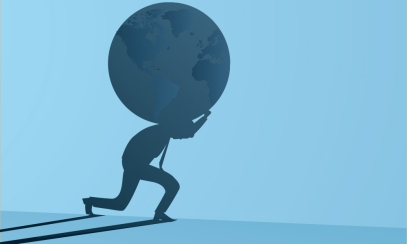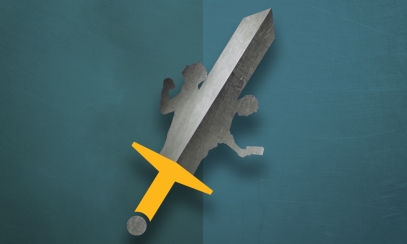Peacemaking is not an easy task
Back in the late 1960s and early 1970s, at St. Mary Student Chapel in Ann Arbor, a banner hung on the wall in back of the altar quoting the words of the Rev. Martin Luther King Jr. They read, “Peace is not the absence of conflict; it is the presence of justice and brotherhood.” Perhaps Rev. King drew his thoughts on peace from Baruch Spinoza, a 17th century Dutch philosopher who wrote, “Peace is not the absence of war; it is a virtue, a state of mind, a disposition for benevolence, confidence and justice.”
Abraham Lincoln demonstrated that peace is established by arduous work, even terrible conflict. Few knew, as he did, the cost of peace – the price we must pay to establish justice and brotherhood. So did Mahatma Gandhi. On the opposite end, we learned that the mere absence of conflict is not true peace. Neville Chamberlain taught us that lesson back in the 1930s.
Over the past four decades I have often pondered Rev. King’s words and strategy and have come to realize how right he was. His non-violent confrontations and his peaceful conflict with the social and legal establishments of his day were truly inspired. His tactics were Gandhi’s, his strategy was Christ’s.
Perhaps you have found in your life, as I have in mine, that conflict avoidance simply does not solve anything. In truth, it leaves injustice and lack of brotherhood in place. It holds the aggrieved in a state of victimhood. It fills one’s soul with self-rejection and depression, all the while allowing cruel perpetrators to continue unchecked in their unjust and oppressive ways.
Here again we are called to realize that God does not work for us, he works through us, within our actions. Our prayers call down God’s presence and power to work with us in order to reveal His kingdom and unveil its presence here on earth as it is in heaven. Our prayers for peace summon us, calling us to action. They call us to the arduous, non-violent task of bringing justice, brotherhood and sisterhood into the lives of those around us.
It is the function of our governmental institutions, our Congress and courts, to bring us justice, and to do so equally for all. “Equal justice under the law” is one of the hallmarks of our American spirit and vision. Wherever, therefore, there are inequalities in receiving what us due to us, we have work to do. One does not have to look very far to see that there is one level of “justice” for those whom the media have anointed with celebrity status, and another level for those who are little-known and overlooked. Furthermore, one can find many other instances in which some of us are considered to be “legal persons” while others are granted no status in our constitutional system. The unborn are a prime example.
It is the task of our religious groups to bring us into true brotherhood and sisterhood. Who, we should ask ourselves, is included under the word “Our” when we pray the Lord’s Prayer? Are not all of God’s children included when we pray to “Our Father?”
Evidently not! One need only read a newspaper or watch a television news program to be aware of the challenge. “And who is my neighbor?” the lawyer asked of Jesus. It is a question that prods all who claim to be religious, regardless of the denomination to which they belong.
There is nothing easy about peacemaking. Oh, we can leave it at the level of a pious thought, a nice wish or a lovely sentiment. But there is nothing sentimental about working for peace, or suffering for it, or dying for it. Justice and brotherhood are yet challenging goals to be met. They are not fulfilled realities. Perhaps in calling peacemakers “blessed” Jesus is calling them to share in His passion, death and resurrection and thus reveal the glorious freedom of the sons and daughters of God, so that we might live in His peace.



